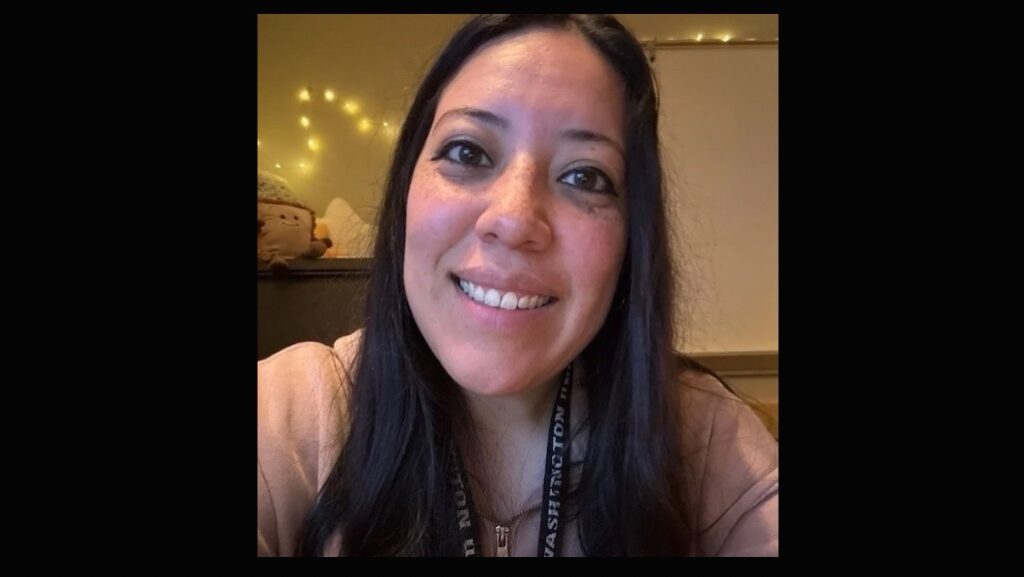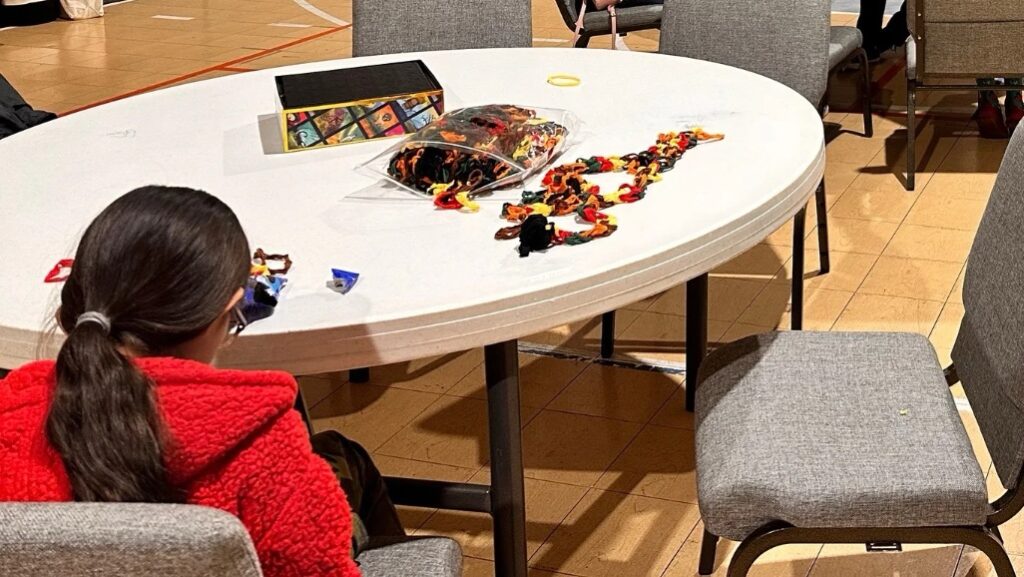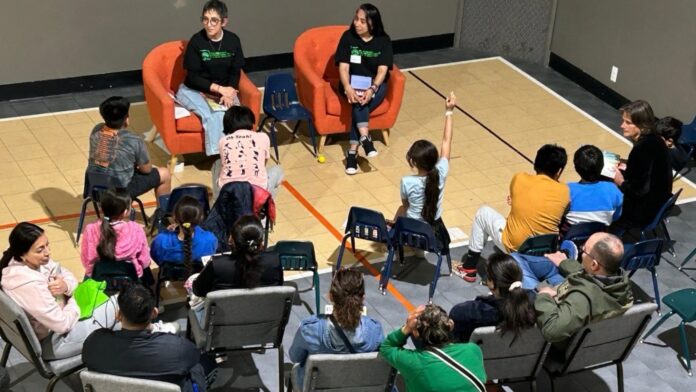Tantrums Are Not Cured with Syrup: The Mental Health of Teens and Children.
Experts warn that depression and anxiety do not wait for adulthood and call for breaking the stigma about mental health in Latino children and adolescents.
Healthy mind, strong childhood
Latino Herald features a series of articles focused on residents in South Snohomish County, and is sponsored by the Verdant Health Commission.

May is Mental Health Awareness Month and during the preparations necessary to write this article, a video of pediatrician Denise Nuñez emerged on social networks in which she establishes that the mental health problems of minors are a reality. And why should we doubt that they are? Because some parents think that mental disorders (anxiety, depression, bipolarity, etc.) begin until adulthood, which, of course, is false.
“Some parents think that children cannot have depression… I have 7-year-old children telling me that they want to take their own lives… 7 years old. We cannot continue to blame the world, the outside for what is happening in our home, parents are responsible.”

In the video, Dr. Nuñez explains that “children are 100% the reflection of what is happening at home… and this includes, of course, part of what happens outside the home.” She also insists that adolescents who have mental health problems are, to a large extent, the responsibility of the parents.
Part of the problem is the distrust of mental disorders in much of our community. To discuss the topic in detail, we sought the collaboration of therapist Jessica Gonzalez, a mental health provider with a master’s degree and specialized training in children’s therapeutic interventions. Jessica offers her services at the Center for Human Services, which covers North Seattle and South Snohomish County.
Jess (as she prefers to be called) tells us that she perceives a positive change in Latino culture in terms of mental health, but clarifies that this transition in thinking is going at a snail’s pace.

“In my experience as a therapist, I can tell you that Latino culture is changing. Latinos – and I’m just going to talk about Latinos – are kind of scared and nervous about the changes, but they’re already starting to ask for help when it’s needed.”
We asked Jess if the situation is different when it comes to adolescents; if young people have a different perspective on the issue, or if they are influenced by their parents’ attitude when addressing mental health issues.
“It’s different, I feel that adolescents have more voice and perhaps more community to ask for help in mental health issues, if they need it. They receive confirmation through computers, cell phones, television that they can do it, or they can look for it, or they can ask for it. Another important factor is that they know that there are a lot of young people who think and feel in a similar way and that gives them the confidence to say ‘I need this, or I want this’ because they feel supported.”

To explain how the stigma surrounding mental health can be eliminated—or at least mitigated—the therapist went back to how slowly the mindset of many people in our community is evolving. And while this is a positive thing, she feels that it is not moving fast enough.
To explain this phenomenon, Jess uses a curious analogy.
“It’s like they’re comfortable with a 2008 cell phone and their kids or a friend might say, ‘What are you doing with that old model? You have to buy the iPhone 16!’ and they say no, because they’re so comfortable with that version… This may be their way of saying that they’re scared to switch devices because it would transform things that they’ve already gotten used to and feel comfortable with, and from that perspective it’s hard to accept that a new version can also help, and a lot.”
In other words, the thought is: ‘I stayed as I am, I don’t ask for help or say anything’ so as not to alter a system that is already in place, even if it is not the best. Maybe they are not ready to try, but that does not mean that they cannot.”

He also suggests that not everyone should be thrown in the same bag because there are many people within our community who are not afraid of change; in fact, they drive and motivate him. Generally, these individuals are non-judgmental when it comes to asking for help if there is any mental health need with them or in their families.
Along with the discussion of the issue, Jess told us that CHS works with school districts in the region to have therapists like her visit schools and provide mental health care to students.
She details that there is a process for this and that one of the objectives is to offer an approach so that students have access to mental health care.
“One of the simplest ways parents can use to get mental health help for their children is through school, they can ask directly if they know where therapy can be found and how to start the process; in schools there will always be a person who will guide you and tell you what to do.”
She also notes that parents can also find the necessary information online, or by consulting with people they trust to discuss these issues.

And at this point is where Jess reveals something that, apparently, many parents do not seem to know:
“There are some legal issues that must be considered because the situation changes depending on the age of the minor: from the age of 13, in Washington state, children can start therapy, since they are already teenagers and they can do it of their own volition, without the need for parental approval; they can request it themselves. From 12 and below they have to have the permission of the parents, or the person who is legally in charge. That’s the law.”
Depending on the financial situation, the parents’ health insurance may even be used to provide behavioral health or mental health services for the minors.
In addition to schools, another tool to use is the Human Services Center, which is where Jess works and where various resources are offered for parents, such as referrals, options, or where they can go to apply for these services.
“CHS can be the first step; there are options for those who are wondering where do I start?” says Jessica.
Finally, the therapist wanted to send a message to Latino minors who are suffering from anxiety about the immigration situation throughout the country, as a result of the policies of the Trump administration.

“I would tell them that it’s good for them to be aware of the situation and everything that’s going on… that tells them that they’re looking for stability, that they want answers and it probably also tells them that they need to connect with someone; and it doesn’t have to be mental health, it just means that they need to process something that they’re worried about. We’re human beings and these situations come up in our lives and make us wonder, “What does this mean?” With the immigration issue, I would tell you to connect with someone that you feel comfortable with and can process it. Then, together, you can determine, “Maybe this needs therapy, let’s take it a step further.” Maybe your body is just telling you that you need to connect with someone to help you process this and alleviate it.”
Returning to what pediatrician Denise Nuñez suggests, it is clear that there is no turning the page: the responsibility for the mental health of children and adolescents lies with parents.
The emphasis can begin on maintaining a balance with the time that minors spend in front of a screen – and on social networks – to combat what they call “brain rot” because junk and excessive content can affect cognitive development.
Neither devices nor social networks are going to raise the child.
At least not in the right way.
If you see any error of any kind in this information you can write to us at the email: info@latinoherald.com.

Latino Herald features a series of articles focused on residents in South Snohomish County, and is sponsored by the Verdant Health Commission.






